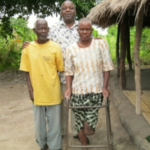Philosopher Helen de Cruz offers a guide to cultivating more wonder and awe in our everyday lives

Wonderstruck: How Wonder and Awe Shape the Way We Think (Princeton University Press) by Helen De Cruz
What is wonder? To try to answer the question requires you to perform the mental act that you are supposedly investigating. Wondering about wondering turns your mind back on itself, seeking the source of its own ability to seek a source. It makes you realise that the capacity of humans to wonder is something of a wonder in itself. Although it is often thought of as a childlike or naïve quality, philosopher Helen De Cruz argues that wonder is actually core to philosophical inquiry and to learning and thought itself. Her new book, Wonderstruck: How Wonder and Awe Shape the Way We Think, is a gently meta undertaking, which encourages readers to turn their curiosity back on curiosity. In doing so, De Cruz suggests, we can find the root of what makes us human – and also take part in a pleasurable inquiry.
That inquiry, for De Cruz, touches on a wildly eclectic range of subjects, from Ursula K. Le Guin’s novels to the environmental writing of Rachel Carson, to magic tricks and Plato. The breadth is indicative of the book’s welcoming attitude. Curiosity and exploration, De Cruz insists, can and should be for everyone. Wonder and the related concept of awe are “emotions that we harness by means of cultural practices … that we nurture deliberately, and that are part of a positive feedback loop.” Wonder isn’t something reserved for the innocent; nor is it a special talent that only scholars can access. Instead, it’s a universal human experience or impulse which needs to be cultivated or exercised to be fully developed.
That cultivation is done through what De Cruz calls “cognitive technologies”– strategies or systems for affecting our own emotions and cognition. Cognitive technologies can be as simple as listening to music to put yourself in a particular mood. Or they can be as complex as religious systems and rituals which, De Cruz says, encourage attention to wonder and awe in everyday life.
De Cruz’s most intriguing discussion of the cognitive technology of wonder involves magic. She defines magic as “the collective term for human practices that harness a perceived, intended, or feigned ability to produce wonders”. That definition is a broad one; for De Cruz it can include genre fantasy stories (like Le Guin’s “Earthsea” series), as well as occult practices and magic shows, all of which encourage participants, readers or viewers to embrace wonder.
De Cruz notes that it’s difficult to make distinctions between “real” and “pretend” magic – a séance is a kind of dare to believe, as is a fantasy story; both are real in the sense that they create a context in which you’re encouraged to question what’s real and what’s pretend. De Cruz points out in particular that stage magic is a “wonder-technology”, which relies on setting up expectations and then defying them.
Magicians don’t really trick the audience, De Cruz says. Instead, they “achieve an effect of impossibility” by exploiting audience members’ sense of object permanence, or the human inability to effectively randomise choice. Magicians essentially use the limitations of human cognition to “trick” people into seeing that their cognition is limited. Magic shows push you to wonder and to want to understand.
Similarly, De Cruz argues, rituals – even simple ones, like removing your shoes when you come in a house or temple – create a sense of estrangement which allows us to question ourselves. “By engaging in ritual, we create an ‘as if’ world … where things are different from how they are in our everyday environment.” That allows you to look at things in a new way, with a shoeless wonder.
Looking at things in a new way can mean a transformation of self. In that sense, cultivating wonder can be seen as a kind of self-help work. De Cruz also argues, though, that seeing the world with wonder is an important prerequisite for activism and change.
She points to the writing of Rachel Carson, in which the wonder of the natural world is a spur to conservation and virtue. For Carson, De Cruz argues, wonder “is an antidote to our destructive concern with gaining control over nature for our own ends.”
In wondering about wonder, De Cruz is demonstrating the virtue and emotion she discusses; her writing is a kind of cognitive technology, designed to encourage and elicit the very phenomenon she’s talking about. Her work is didactic in the best sense, in that she wants to share what she has learned, and to encourage readers to explore and learn for themselves.
Wonderstruck isn’t just a philosophical analysis. It’s a guide to wondering more and better in our reading, our thinking and our everyday lives.
This article is from New Humanist’s autumn 2024 issue. Subscribe now.

